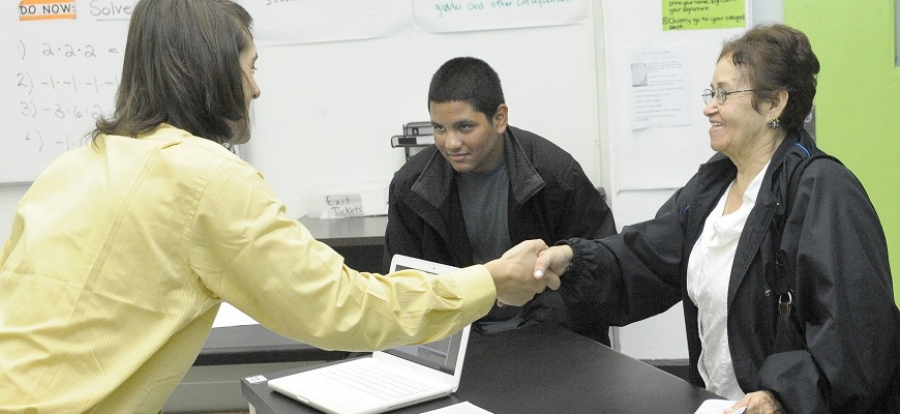The Department for Education published a report on parental engagement in the education of children (aged 5-19) which highlighted that teachers feel they lack confidence “Both praise and raising concerns can often be left until parents evenings.”or the knowledge to work with parents effectively, while parents felt schools do not encourage or inform them on what they can do that fits around busy working and family lives. It also revealed a sentiment that schools do not recognise the ways in which parents already engage with children’s learning. However, we do all know the value of working together to support children’s academic performance - so it’s more a matter of making sure the lines of communication remain open, and supporting schools in developing an effective parental engagement programme.
The same report found that a whole-school approach to parental engagement, and the use of information and communication technology were particularly successful methods. On whole-school approaches, the Department for Education found that “attempts by schools to engage parents in their children’s learning are unlikely to be successful if they represent a ‘bolt-on’ to mainstream activities.” Integrating parental engagement into a wider strategy therefore ensures it remains a priority across all members of staff. It also recommended a leader to coordinate and implement a parental engagement programme, ongoing support and a focus on collaboration, with engagement focused on being proactive rather than reactive to parents.
Beyond parents’ evenings
Often, both praise and raising concerns can be left until parents’ evenings before they are discussed. This is easily done when there are numerous students to monitor and track progress with, plus time is precious. However, being able to easily communicate when there is a problem with attendance or performance will reduce the pressure on both teachers and parents.
Schools do understand the elements needed for a successful parental engagement strategy and the need to support parents’ evenings to be an efficient use of time for both parents and teachers, but they also need access to the best channels to implement and communicate it.
Online learning platforms offer a place for everything to be stored in one place, making progress, current performance, homework assigned, attendance “A student may demonstrate a willingness to help others more.”and other feedback available to teachers, parents and students alike. The communication stream is constant, so less time is spent setting up meetings or sending individual letters home, and guidance on improvements can be accessed instantly. Of course, should a more serious issue be highlighted, the teacher or parent can still make use of meetings or parents’ evenings to discuss in person.
These platforms also give teachers a place to make anecdotal notes that may not usually fit into a traditional parents’ evening narrative or end-of term reports, but that are useful for monitoring behaviours throughout the term or year. For example, a student may demonstrate a willingness to help others more, but when putting together their report, a teacher may struggle to identify when this change in attitude happened or why. With an online learning platform, it isn’t just about delivering content and monitoring academic performance, it allows teachers to note even the smallest changes in students, making their feedback to parents all the more personalised and meaningful.
Taking full advantage of the technology available to us won’t just make it easier to get parental engagement right. It will create a constant line of communication, so everyone is kept in the loop, equipping both parents and teachers with the information needed to support student development. It doesn’t have to take a village - just a well thought out parental engagement strategy and the tools to make it possible.
Want to receive cutting-edge insights from leading educators each week? Sign up to our Community Update and be part of the action!


















